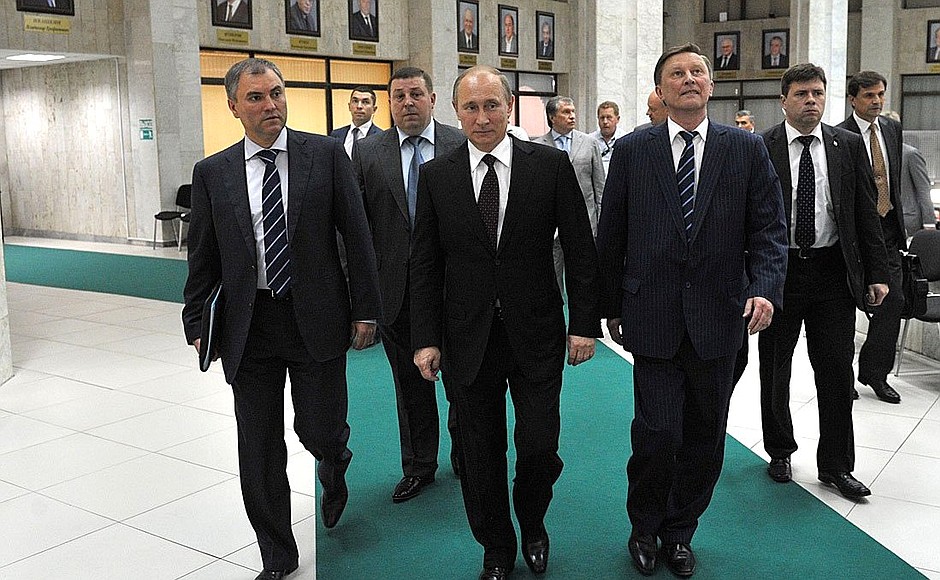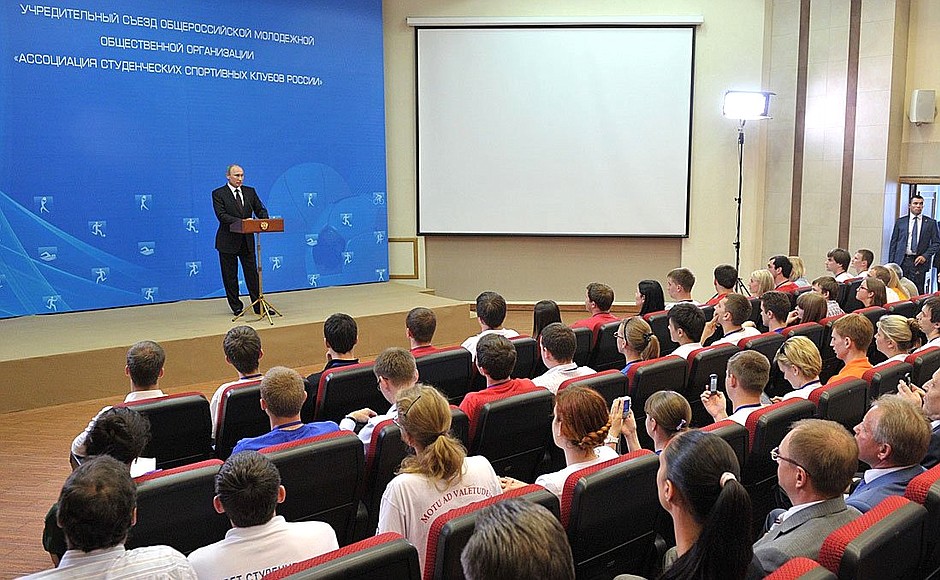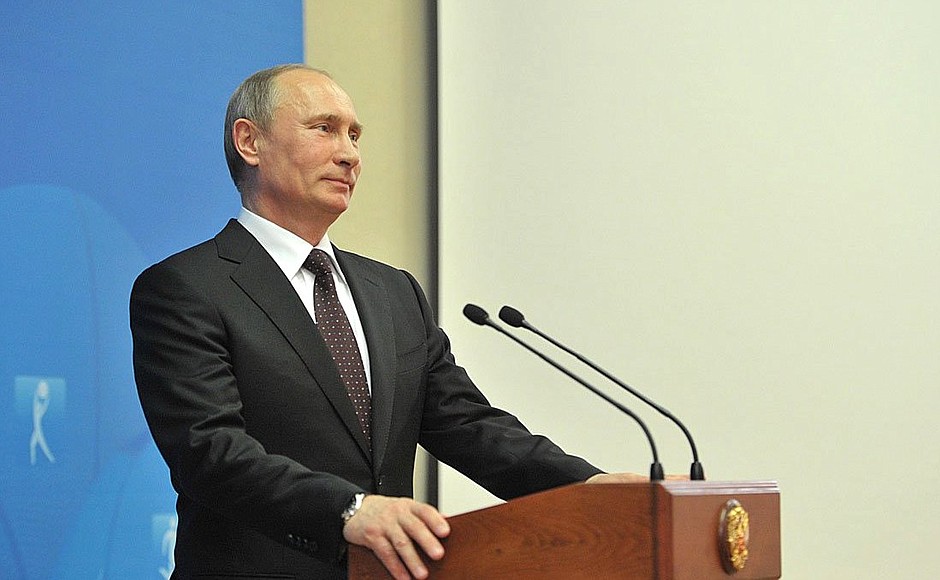The association’s main aim is to develop mass student sport and organise competitions and events to promote youth sport and a healthy lifestyle.
* * *
President of Russia Vladimir Putin: Let me start by thanking the Sechenov First Moscow State Medical University for offering this venue, giving you the chance to spend two days here at this renowned university, discussing the issues that have brought you together.
It is an interesting and noble purpose that has brought you together, namely, the establishment of the Association of Russian Student Sports’ Clubs.
Student sports clubs and associations of this kind began developing in the 19th century, and in 1911, I think it was, the first student associations were established, first in St Petersburg and then in Moscow.
By the start of World War I there were students’ sports clubs at 40 of the country’s 104 higher educational institutions. What you are doing today, therefore, continues traditions long before started by your predecessors.
It is symbolic of course that the association is beginning its work on the eve of the students’ main sports event – the World Universiade in Kazan. This is the biggest student sports event and is vivid evidence of just how important sport is for students all around the world, including in Russia.
Taking part in university sport is not just a prestigious thing to do. Taking part in competitions helps to forge one’s character and inculcates a love of sport and physical culture that continues onward through the years. I know from my own experience that this is something that usually stays with you for the rest of your life.
The founding of your association is a symbol of continuing the traditions that I referred to just now. Student sports clubs bring together people who think alike, and in this respect I think that you should not just limit yourselves to organising sports competitions.
Student clubs of this kind can channel students’ immense potential into attaining big constructive goals and have an impact on creating the conditions for developing sport. You can exert this influence through dialogue too, above all with the heads of your universities.
As you know, the new law on education will take effect from September 1 this year. This law clearly prescribes universities’ duties to facilitate development of physical culture and sport. I see the rector of Moscow State University nodding. As he heads the country’s leading university, he can set the example and all his colleagues around the country will follow.
One of the aims of organising Sports clubs is to promote sport and a healthy lifestyle. This is very important for our society in general and for supporting young people’s growing desire to get involved in physical culture.
Another area is work with groups of fans and team supporters. Anyone can become a fan and support their team after all, regardless of their own level of sports training.
I emphasise too, that sports clubs can cultivate and train athletes for even the highest-level competition. I am sure that these clubs will produce people of whom our entire country will be proud. But the most important thing of all is to develop mass sport and get as many students and young people as possible into sport.
This was something we discussed at a meeting with representatives of student sports clubs at the Kremlin in January. Some of you here today were probably at that meeting. There are a few points I particularly want to stress in this respect.
First, the student clubs should be fully open to people of all political views, faiths and ethnic groups. This is especially important in a country such as ours.
You need to prove your usefulness through your action. Don’t wait for demand to come, but go out yourselves to identify the problems ahead of you and resolve them. Set up sports groups and clubs in traditional sports and in emerging new disciplines.
Second, your association can serve as a kind of ‘social lift’ for people looking to get involved in public life. This is a useful practice and what’s more it offers the chance to get experience while working in a needed area. It is an opportunity to acquire the needed skills, learn how to organise people, how to promote one’s proposals and ideas, and how to build relations with the university officials. This is all important.
Third, you should get influential members of the university management, prominent sportspeople and cultural figures, businesspeople and journalists involved in your work.
I noted that the student sports club movement started back in the 19th century. People such as Chekhov were active supporters of student sport. Other well-known names were active too. I won’t list them now. I think you will remember them during your organisational work.
I specifically mention this because our country’s thinkers have always supported this area of young people’s lives. I am sure that this will continue to be the case, and I am sure you will be able to get them actively involved in your work.
Let me say again that top-level sports achievements and our athletes’ success at prestigious international competitions are certainly important and necessary, but the main thing is to make sport and an active lifestyle the norm for Russian society, make them today’s trend, as one might say now. I hope the Association of Student Sports Clubs will become one of the leaders in taking us towards this goal.
I wish you success. Thank you very much for your attention.


